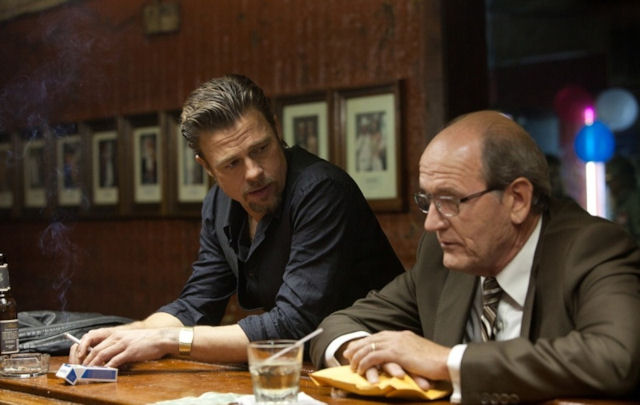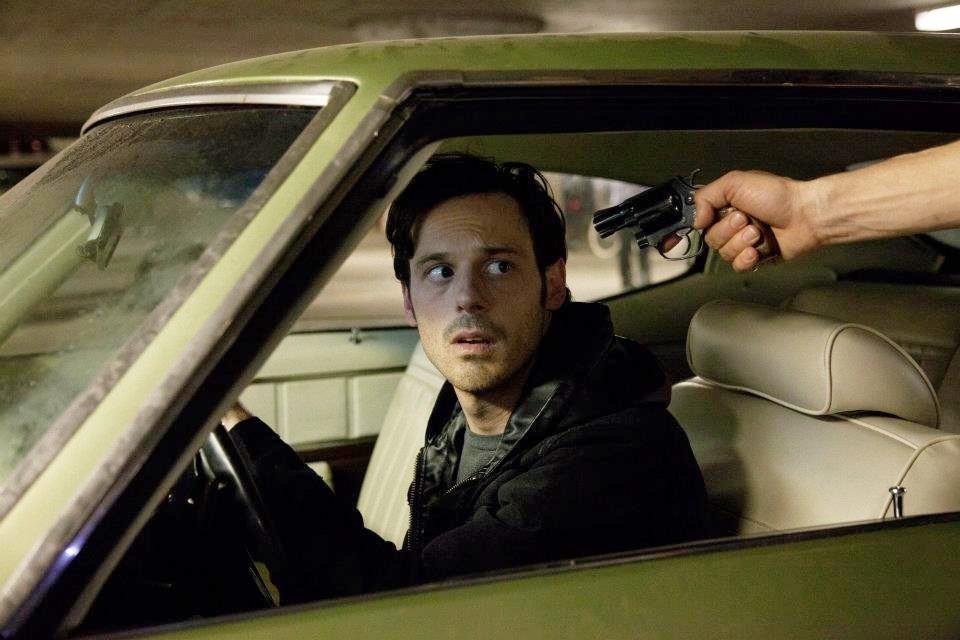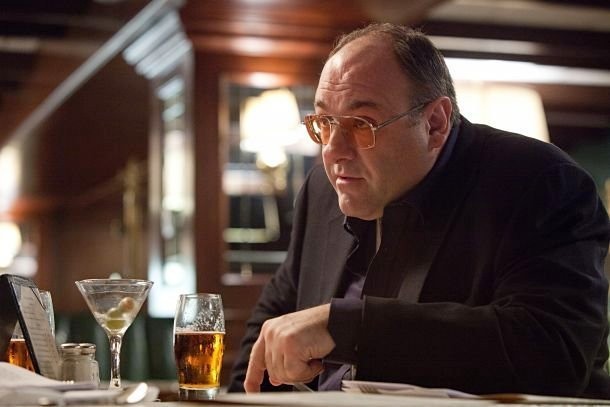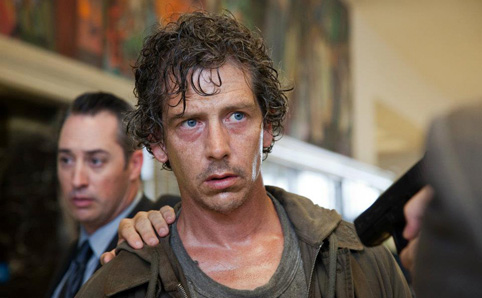|
Killing Them Softly is a
crime film, adapted from the George V. Higgins novel "Cogan's Trade".
It is set during the economic downturn of the Bush Administration,
before
Barack Obama was elected to office. Three bumbling criminals decide
that they
are going to holdup and rob a Mob card game that is housing large sums
of
money. Two of the crims who are going to perform the stickup are
Frankie (Scoot
McNairy) and Russell (Ben Mendelsohn), who is an Australian junkie that
steals dogs
to make money. They plan to pin the robbery on Markie (Ray Liotta), who
administers the game and once stole from it but was let off. Once the
tense
holdup is over, a hitman named Jackie (Brad Pitt) is brought in to
investigate for
the mob. His instructions are provided by an elderly man named Driver
(Richard
Jenkins), who tells him to "talk" to Markie and to take down the
thieves. This also introduces another hitman in Mickey (James
Gandolfini),
whose carelessness, relying on booze and hookers, is at odds with
Jackie's
utter professionalism.

You won't
know if you like Killing Them Softly straight
away. It's a modest, peculiar, crime drama that relies heavily on the
complexity
of its characterisation and socioeconomics, rather than a predictable
romanticism about the underworld, followed by the inevitable fall from
grace.
The film is challenging. It asks more of its audience, but if you're
willing to
stay with it, it is both original and thought-provoking. The more I
have
thought about this movie after seeing it, the more impressive it has
become.
The film's unconventionality stems from its director, Andrew Dominik.
He is a
New Zealand-born but Australian-based filmmaker, who gave us the local
biopic Chopper (2000) and then his first
Hollywood production The Assassination of
Jesse James by the Coward Robert Ford (2007). Throughout the
development of Jesse James, Dominik fought the
distributor Warner Bros. over the direction of the film, which saw him
removed
entirely from the editing process, and the film was largely reshaped
without
his input. The film was a box-office failure, and as a result this is
the first
film Dominik has made in five years. The previous loss of creative
control and
the importance of financial success, made this director weary of
Hollywood's
business model and the emphasis that it places on financial success.

Dominik
has taken these painful experiences of the dog-eat-dog world of
Hollywood and
injected them with self-reflection into his story and characters,
opting to debunk
the American Dream. Jackie's statement at the end of the film, that
'America is
not a community, it's a business', epitomises the entirety of the film
and the
attitude of the characters. The value of money, in this criminal
underworld, is
placed infinitively higher than any moral trait or any human being or
code of
ethics. The film projects this through its context and its setting. It
is set
in New Orleans, with rain soaked streets and rundown buildings proving
very
atmospheric, and held at the start of the American economic crisis. Cleverly, the film captures the attitude of
the recession, rather than
being a transparent and simplistic metaphor for the crisis. If the card
game is
the American economy itself, then Frankie and Russell are the greed of Wall Street. They rob the game
with everyone in the room, hoping to pin the blame on someone else and
disappear,
never thinking about the consequences. The robbery itself is a master
class in
tension and the film's best scene. It is extended to breaking point,
making us
dread that someone will be killed, yet it also draws a huge line in the
sand
too. A long uninterrupted tracking shot of both men exiting through a
dark
alley reflects the turning point in their lives, from when they had a
chance to
walk away from the money and then into a new period where it became
more
important than their own well-being and Markie's, who they hope will be
blamed
for the crime.

The other
mobsters are also representative of self-interest,
strictly through business and finance. Jackie views murder not in
sadistic
terms but as a financial outlet from which he can survive. He has a
cold
detachment and callous nature towards other people's feelings: "They
cry,
they plead, they beg...Embarrassing. I like to kill them softly, from a
distance." He kills people with maximum efficiency because he is not
interested in any physical or emotional attachment, only his payment.
This attitude
is reflected in the soundtrack. Jackie is introduced very coolly, with
the
Johnny Cash song "When the Man Comes Around" playing. Cash's music
was synonymous coming to terms with death, and in conjunction with
Pitt's
richly defined egotism, it heightens Jackie's presence as an
angel of death for hire. There are two separate, seemingly
unrelated scenes, which further help us to understand his character.
The first
is where Markie is pummelled senselessly on a rainy night by two thugs.
Dominik
doesn't cut away from the violence and the sound effects are
deliberately amplified.
We repeatedly see the blows smashing up his face as he vomits on the
ground.
Initially, I thought this was an ugly scene, almost unwatchable, and
not
without much purpose. However, the violence is actually used to enhance the film's ideology and
characterisation. Dominik contrasts the beating with Jackie's
execution, which is swift and precise. A slow-motion
shot
of the bullet, as it spheres through the back of a man's skull, shows
Jackie's
ruthless but also his professionalism, refusing to linger over the
violence or
making it personal.

As rich
and colourful as some of the characters are, there isn't a lot of
attachment to
these scumbags. This is inevitable and deliberate, but also problematic
when
the film rambles through some long, cryptic conversations and when
geographically some of the characters go missing for long stretches.
I'm also
sceptical about Dominik's insistence that the film is a comedy too, in
spite of
a few funny quips. Regardless, enjoyment isn't a factor with stories
and
characters as unpleasant as this. It is about what new ideas
can be conveyed about the crime world. It is a success in
that regard because I have spent a great amount of time thinking about
its
sophisticated gallery of characters and performances, as well as the
deep
socioeconomic subtext that frames the story. I think I like it after
all.
|